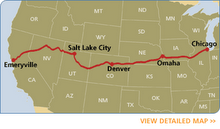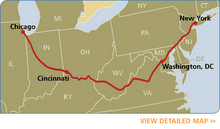What I can learn from books is the facts, the tasks, the expectations, and the problems of their daily work life. From the oral histories and the documentaries, I can learn their voice, cadences, jargon, as well as what made them laugh. But what about the bonds they formed? What about the feel of the rails beneath their feet? What about seeing the Pacific Ocean for the first time or the Rockies from the foot of Glenwood Canyon as I am right now? What about being just one generation out of slavery?

So far, I’ve read a few oral accounts of these men and all but one enjoyed his life as a porter, in spite of the racism; it was more than the money. There had to be something else that kept them out here and sustained them while they were miles away from their families. What was that?
I want to understand this character. I know a few things about him. (What I do know, I’m keeping to myself for now). I don’t know yet where he was born or how he became a porter or where he lives, Chicago or New York. Research has always helped me to answer these questions and lead to other more interesting questions. Research on the BSCP leads me to labor movements and other political movements, like the anti-lynching campaigns, desegregation of the military. What about jazz and art? How can I approach anything happening with black folks in the 1920s without looking at the Harlem Renaissance?
I have read Zora Neal Hurston’s Colored Me and Alain Locke’s The New Negro and other Harlem Renaissance writers and they are so optimistic, it seems naïve to me. But what do I know? I am one generation after the Civil Rights Movement, the Black Power Movement, assassinations and political scandals. I am cynical. How do I recreate that hope and confidence? Where the hell did it come from? They didn’t know; they had no idea the battle it would take and the whole time, they knew that they had right on their side.
I don’t have their faith, so a part of me doesn’t understand it. I want to. Maybe I really need to. How will this all of this come together? I have no idea. I'm not sure how I did it before, but that I did once allows me to believe that I will again.





No comments:
Post a Comment
Post a comment. Thank you.